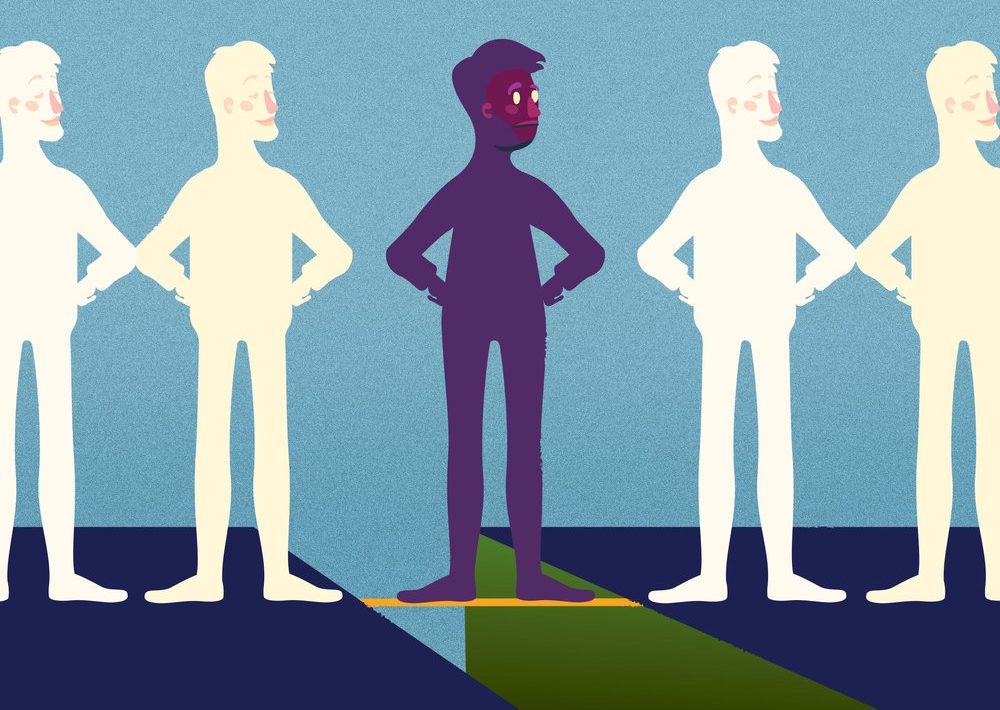What society sets up as being normal and what truly is normal can be two different things. As we’ve seen in the news, in posts on social media, in some politician’s point of view, we live in a society in which racism is actually the norm, the normal, which sets people who are targeted by it as being “the others”, “the strange ones”, “the crazy ones”.
People who are the target of racism often feel like they are not allowed to fit in completely in a society in which whiteness is the norm, thus leading to feelings of exclusion, of feeling unwanted, that they have an inferior culture, and that when they speak about racism, they will be told: “It’s just the way it is”.
On top of that, the general view about normality seems to reinforce a system in which white people are the dominant ones, but that’s actually far from being true. While people of color are simply described as being “minorities”, in fact, white people represent just about 16% of the Earth’s population.
Racism and anger
Anger regarding racism, as justifiable as it is, is often described as “going crazy” and it creates a narrative in which people of color that experience racism have to hold the emotions bottled in; probably the most affected group is that of African-American men, as they will simply be labeled as “angry black men” and racism is erased from the conversation.
As we talk about the connection between racism and mental health, it allows for people who experience racism to finally have a space in which they can talk about their feelings without being categorized as being “crazy” and “troublemakers” just because they talk about it and crave equality.
Mental health oppression means that a person who experiences constant discrimination on a general basis (their race, gender, sexual orientation, religion, etc.) is not allowed to fully express themselves without fearing that they will be labeled as “crazy”, as if racism and other forms of discrimination don’t exist.
The lies that racism continues to perpetuate, intertwined with mental health oppression, have created a status quo that has created this whole situation in the first place. We can’t forget how slavery was considered normal for hundreds of years and it helped build the United States of America through unpaid labor.
During those days, people who were of African-heritage and tried to escape slavery by running away were diagnosed with “drapetomania”. If you haven’t heard of this illness, it’s because it doesn’t exist – it was simply created to explain that refusing to be a slave was a “mental illness”.
Unfortunately, to this very day, black people still represent the group that is least likely to cope with mental health issues, as they have a history of not being properly diagnosed and, even when they are, they usually receive the worst treatment, compared to other ethnic groups.
What do we learn from the mainstream?
As the mainstream American culture is dominated by white people, it creates the idea that any other culture that is different in one way or another, is “strange’. Mental health oppression is also responsible for reinforcing assimilation, meaning that people who experience racism have to adapt to the white culture just to survive.
This basically makes the “normal” as being a place in which white people don’t need to find out more about how other people live, how their cultures are different, there is no pressure to learn a different language. This is just another reason why representation matters in all possible areas.
A website like https://biggerbetterbeards.org features a more diverse group of people from different backgrounds, while also featuring women as well, not just men, a move that is highly appreciated – and, not to mention, a good business move after all, since brands that aren’t diverse enough tend to suffer lower recognition and sales.
Fortunately, there is finally enough recognition of this so that maybe people will start to make a change in their lives – from calling out racism to making sure that they do get the proper healthcare. As we mentioned in other articles, there are several ways to battle mental health issues, from doctors to exercise, depending on several factors.
Musician Kid Cudi received praised for publicly admitting to dealing with mental health issues that made him struggle with ideas about suicide for years and years and raised the alarm about how people in the black community don’t receive enough support to fight such illnesses or affections.
In order to survive in a white world, black people usually have to put on a stronger exterior than counterparts from any other race, as they are usually the ones most likely to be the target of racial abuse. But, like with any other human, putting up a strong outside is just a facade that can’t last forever.
As people of color need to present to today’s society a much tougher exterior than white people, it leads to them not being able to receive proper help and care where it is the case. This happens due to several reasons, one of them being the stigma that comes with having to say you have a mental health issue.
The fact that there is still a stigma about this when almost half of the population of the United States of America will suffer mental health issues, at one point or another, is quite ridiculous. If 46.4% of Americans deal with this, it is about time we figure out the best way to fight stigma is to be honest.
Realizing that some people are being treated worse than others, based on their skin color, is another huge step that we need to take, in order to ensure that we all are treated as humans, regardless if we fit the status quo or not. This should have been done a long time ago, but we are hoping things can still be salvaged by admitting this even now.











